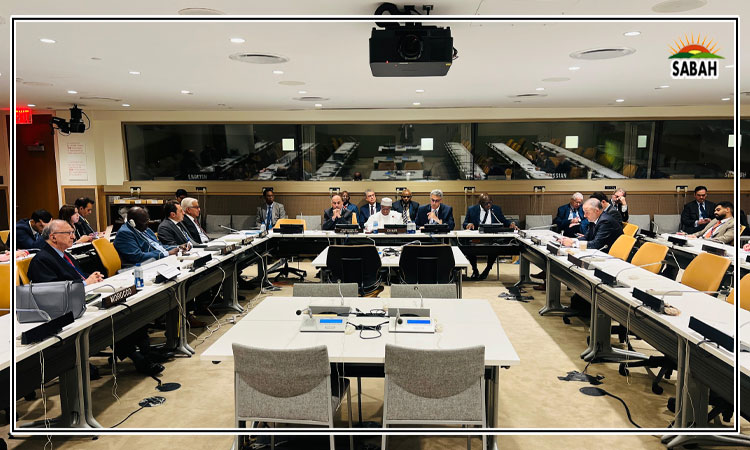Local polls in Indian Occupied Kashmir no substitute for people’s right to self-determination: OIC
UNITED NATIONS, Sep 26 (SABAH): The OIC Contact Group on Kashmir Wednesday reaffirmed its support to the Kashmiri people’s “legitimate ” struggle for their right to self-determination, and firmly rejected Indian leaders’ “unwarranted” claims over Azad Jammu & Jammu and Gilgit-Baltistan.
A joint communique issued after the meeting also underscored that the Lok Sabha or Legislative Assembly elections in Indian Occupied Kashmir cannot serve as a substitute to the grant of the right to self-determination to the Kashmiri people.
It emphasized that durable peace and stability in South Asia remain contingent upon the Kashmir dispute’s final settlement in accordance with UN Security Council resolutions and Kashmiri people’s aspirations.
The meeting, in which Ministers and Senior Officials of Pakistan, Turkey, Saudi Arabia, Azerbaijan and Niger took part, was presided over by OIC Secretary-General Hissein Brahim Taha. It was held on the sidelines of the UN General Assembly’s 79th session.
Pakistan was represented at the Contact Group by Defence Minister Khawaja Mohammad Asif.
Others participating were Turkiye’s Deputy Foreign Minister Nuh Yilmaz, Azerbaijan’s Deputy Foreign Minister ELnur Mammadov, Saudi Ambassador Haitham Al-Aalki and Niger’s Director of International Organizations at the Foreign Ministry, Hama Knsaye Souleymane. Dr. Ghulam Nabi Fai, Secretary-General of the World Kashmir awareness forum, attended in his capacity as True Representative of the People of Jammu and Kashmir.
At the outset, Khawaja Asif brief members of the Contact Group about the deteriorating situation in the Indian Occupied Kashmir, saying that human rights abuses were rampant.
The communique called for reversing all illegal and unilateral measures taken on or after 5 August 2019, stop the gross, systematic and widespread human rights abuses in the Indian Occupied Kashmir, halt and reverse the illegal demographic changes in the disputed territory, allow unrestricted access to UN Special procedures, international media and independent observers to visit the region.
It rejected last December’s Indian Supreme Court’s judge on the status of Indian Occupied Kashmir emphasizing that domestic legislation and judicial verdicts cannot be invoked to undermine the internationally-recognized disputed status of Jammu and Kashmir.
The Communique condemned the protracted detention of the Hurriyat leadership, the genuine voice of the Kashmiri political aspirations, and thousands of political activists and dissenters;
The Communique condemned the banning of a number of Kashmiri political parties and the ongoing campaign to confiscate the properties of the Kashmiri activists, to suppress dissent and intimidate the local population;
The Communique denounced the Indian authorities’ plea seeking death penalty for one of the most prominent Kashmiri leaders, Yaseen Malik, who was awarded a life sentence in 2022, and demanded his immediate acquittal and release;
The Communique urged India to end the human rights violations being committed by its forces in Kashmir.
The Communique requested the Office of UN High Commissioner for Human Rights to continue monitoring the situation in IIOJK and issue a third report, in addition to its reports of 2018 and 2019, on the ongoing human rights violations there;
The Communique also requested the Secretary General and OIC Member States to highlight the plight of the Kashmiri people at various international fora, including the United Nations.












